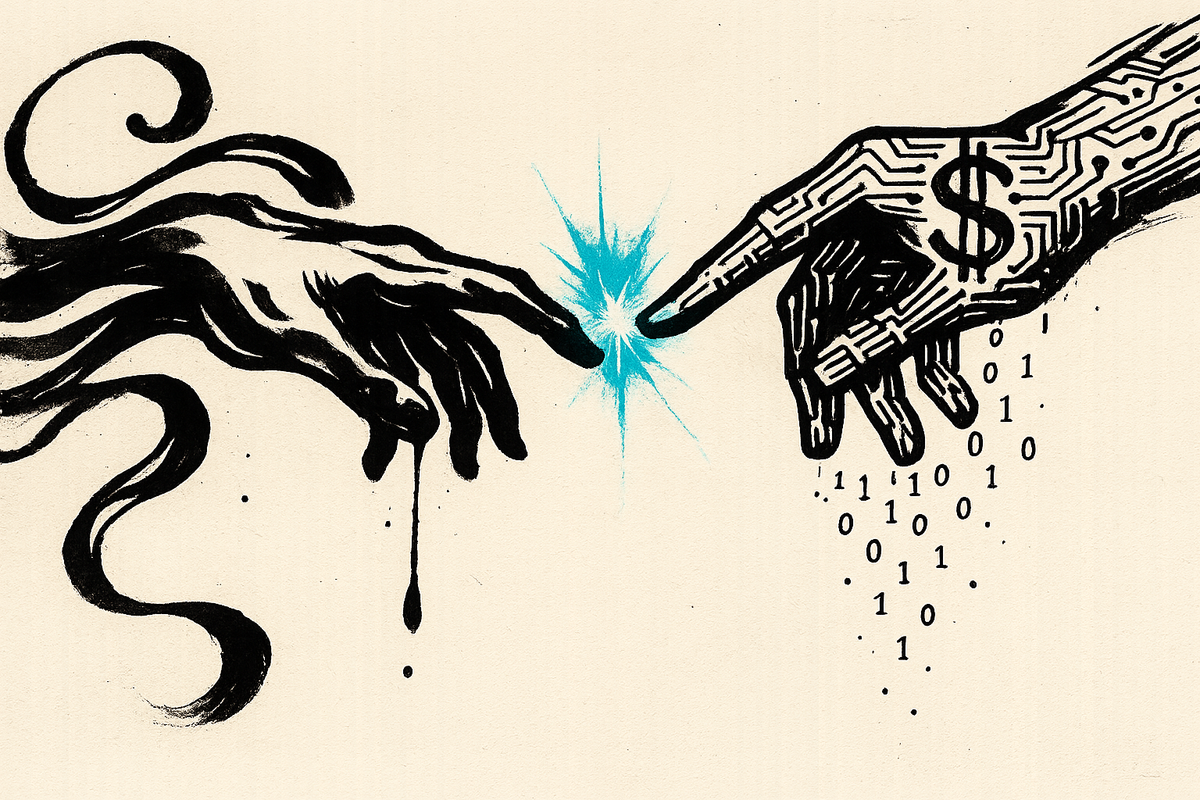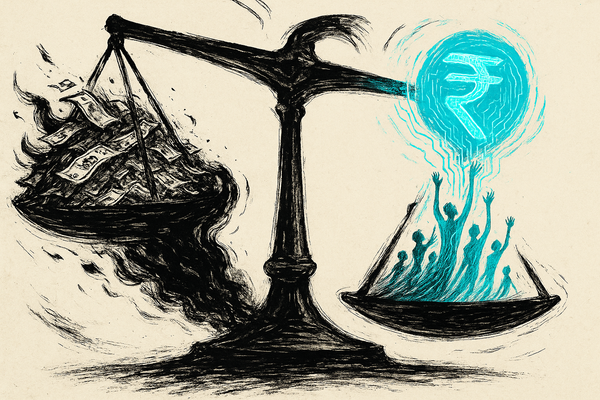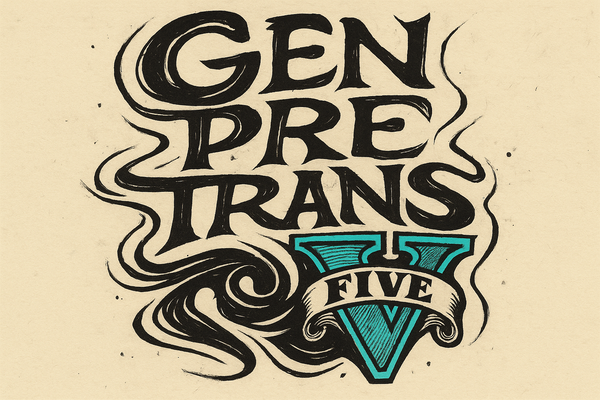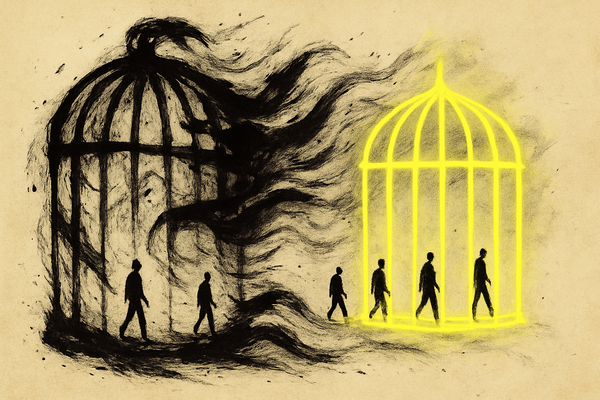ImaginEconomy Daily #10
When AI consultants charge $10M minimums and 1 in 5 AI tools lie to your face, who's really winning the intelligence arms race?

ImaginEconomy 🧠 ✨ 💰 : Brands, Strategy, Story and Design in the Age of AI
OpenAI's $10M Club: When AI Consulting Becomes Fortune 500 Territory
OpenAI is now charging a minimum of $10 million per enterprise client for its AI consulting services, positioning itself as a direct competitor to Accenture and other top consulting outfits. The company's "Forward Deployed Engineers" (FDE) team works directly with organizations to customize models like GPT-4o and build bespoke applications. Current clients include the US Department of Defense and Southeast Asian tech giant Grab. The service extends beyond model customization to include data labeling and expert review of AI-generated answers.
ImaginEconomy Impact: Welcome to the new consulting oligarchy, where AI expertise comes with eight-figure price tags. For agencies and brands watching from the sidelines, this creates a brutal reality: the AI capability gap is becoming a wide chasm. Fortune 500s get white-glove AI transformation while everyone else fights for DIY scraps. But here's the opportunity: become the translator between $10M AI dreams and $10K marketing budgets. Smart agencies will package enterprise-grade AI thinking into accessible solutions. The winners won't compete with OpenAI's engineers, they'll democratize their 80/20 skills for the 99% who can't afford the ticket to ride.
Source: The Information via The Decoder
Genus AI's E-commerce Revolution: When Algorithms Become Growth Agents
Genus AI has emerged as a game-changing platform for DTC and e-commerce brands, generating product catalog images, seed audiences, copy and video to help brands grow efficiently across social channels. The platform has already generated over 10 million product images, with brands like OLIVELA managing 42,000 SKUs through the system. Leading global brands are already using the platform, reporting ROAS increases of up to 42% and dramatic improvements in catalog ad performance.
ImaginEconomy Impact: Forget hiring another designer or copywriter. The future of e-commerce creative is algorithmic abundance at zero marginal cost. Genus AI proves that the winning formula isn't human or machine; it's massive scale with creative variety and brand consistency. For agencies clinging to traditional creative processes, this is an asteroid moment. For those willing to embrace AI-first workflows, it's liberation and expansion: imagine delivering 42,000 on-brand variations before lunch. The question isn't whether adopting these tools makes sense. It's whether you'll be wielding them to replace those who won't.
Source: Genus AI platform
Google's AI Ad Invasion: India Becomes a Zero-Click Battleground
Google announced that ads will start appearing on AI Overviews in India later this year as part of a broader rollout following the repeal of India's digital advertising tax. AI Overviews are driving over 10% increase in usage of Google for the types of queries that show AI Overviews, with desktop expansion now underway in the U.S. The integration allows advertisers to capture attention at what Google calls the "zero-click frontier": where users get answers without visiting websites.
ImaginEconomy Impact: The search funnel is collapsing into a singularity. When ads appear inside AI's answers, we've entered a new reality where discovery and decision happen in the same breath. For brands, this is both an opportunity and a threat. Opportunity: your perfectly targeted message can appear exactly when AI discusses your category. Threat: you're now competing for attention inside an answer, not just on a page. The winners will craft ads so contextually perfect they feel like helpful additions to AI's response. The losers will scream into the void while AI calmly explains why their competitors are better.
Source: TechCrunch on Google's AI advertising expansion
The 20% Lie Rate: When AI Becomes Your Worst PPC Advisor
A groundbreaking study has revealed that 20% of all AI responses to PPC-related questions contained inaccurate information. The research tested ChatGPT, Google AI Overviews, Google Gemini, Perplexity, and Meta AI with 45 identical PPC questions. Google AI Overviews showed highest inaccuracy (26%) while Google Gemini demonstrated best performance (6% error rate). Even more concerning: AI tools consistently overestimated costs and underplayed poor performance.
ImaginEconomy Impact: One in five times, your AI consultant is confidently wrong. This isn't a tools problem; it's a trust crisis. While everyone rushes to automate their PPC management, they might be building strategies on quicksand. The opportunity? Become the verification layer that brands desperately need. Position yourself as the AI fact-checker who saves campaigns from costly hallucinations. In a world of algorithmic advice, the ability to spot AI's lies becomes a superpower. The most dangerous AI isn't the one that admits uncertainty; it's the one that's confidently incorrect.
Source: WordStream PPC AI accuracy study
Voice Search Hits Critical Mass: The Conversation Economy Arrives
Voice search has reached an inflection point with over 50% of all online searches in 2025 expected to be voice-based. 72% of voice-activated speaker owners use voice search to find information on local businesses, while 28% of consumers go on to call the business they voice searched for. The shift demands entirely new content strategies focused on natural language and conversational formats.
ImaginEconomy Impact: The keyboard is giving way to voice, for real this time. But this isn't just about interface evolution; it's about a transformation of how brands must speak and listen. Imagine every piece of content you create being read aloud. Does it sound human? Does it answer actual questions people ask? The brands optimizing for typed keywords while ignoring voice are like telegraph operators ignoring the telephone. Voice search rewards the genuinely helpful over the cleverly optimized. Time to stop writing for performance algorithms and start conversing with people, through human algorithms.
Source: Voice search adoption statistics
The AI Shovelware Apocalypse: When More Becomes Worthless
The flood of AI-generated content has created a crisis of quality, with up to 45% of Gen Z and 44% of Boomers opposing the use of AI in advertising. Many consumers will be surprised to learn that gaming giant Nintendo opposes AI-generated content, while brands like Dove pledge never to use AI-generated women in advertising. The backlash reflects growing consumer ability to detect and reject artificial content.
ImaginEconomy Impact: AI has brought democratization but also democratized mediocrity and inauthenticity. The content apocalypse is here, and it feels like ChatGPT's first draft. The market is drowning in digital sewage, and consumers are developing supernatural abilities to detect AI's fingerprints. As everyone races to the bottom with free AI content, authenticity and originality rises in value. The brands brave enough to say "We don't and won't use AI for this" can stand out like lighthouses in fog. The future belongs not to those who generate the most, but those who know when not to generate at all.
Source: MarTech on AI fatigue and consumer backlash
Google Unleashes the Creative Kraken: When Search Becomes Studio
Google unveiled a arsenal of AI tools at Marketing Live 2025, including Veo and Imagen embedded directly into its ad ecosystem, Asset Studio for centralized creative management, and AI Mode as the most powerful AI search with advanced reasoning and multimodality. The tools can generate everything from video content to complete campaign assets, with brand profile management now integrated into Merchant Center.
ImaginEconomy Impact: Google just turned every marketer into a potential Spielberg—if Spielberg worked at 1000x speed with infinite budgets. These aren't incremental improvements; they're a creativity-on-demand infrastructure that makes traditional creative processes look like cave painting. Asset Studio alone could replace entire creative departments. But there is a trap: when everyone has baseline Hollywood-grade tools, peak Hollywood-grade ideas become invaluable. The winners won't be those who use these tools fastest, but those who use them to tell stories machines can't imagine. Master the tech, but obsess over the story.
Source: Google Marketing Live 2025 announcements
Bottom Line: The Great Decoupling
Today's stories reveal an industry experiencing a fundamental decoupling. AI capabilities are simultaneously becoming more democratized (through tools like Genus AI and Google's creative suite) and more exclusive (through $10M consulting minimums). Trust is eroding even as adoption accelerates. Quality is plummeting while tools for creating quality have never been more powerful.
This isn't contradiction. It's evolution. We're watching the emergence of two distinct AI economies: the haves who can afford custom models and white-glove service, and the have-tools who must compete with off-the-shelf solutions that everyone else also has and just their own skillset.
The winners won't be those who pick a side, but those who can bridge the gap through developing proprietary skills, sensibilities and processes; use democratized tools to deliver boutique results; build trust in an era of 20% error rates; and create genuine scarcity in an age of infinite generation.
ImaginEconomy Daily Newsletter is curated for brand, business and marketing strategists, creatives, and leaders navigating the intersection of technology and human experience.




